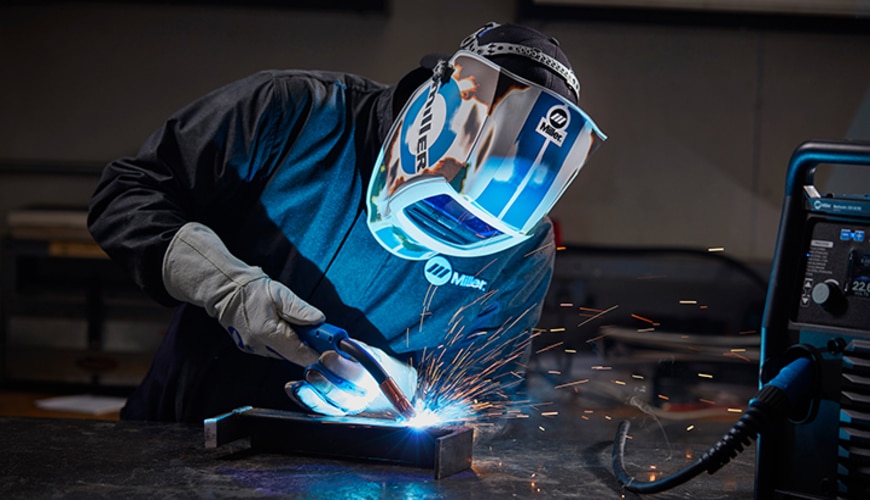
Certificate In Welding Trade (CWT)
By NCTA Team Last Updated: January 16, 2026Overview:
Welding Trade refers to the specialized skill of joining metals using high heat to melt and fuse them together. It is a crucial process in industries like construction, manufacturing, shipbuilding, and automotive repair. Welders use various techniques such as Arc Welding, MIG Welding, TIG Welding, and Gas Welding, depending on the type of metal and the specific application.
Course Description:
Certificate in Welding Trade (CWT) is a six-month professional training program offered by the National Council of Training Academy. This course is designed to equip students with essential welding skills, covering Arc Welding, MIG Welding, TIG Welding, and Gas Welding. Participants will gain hands-on experience in metal fabrication, welding safety, blueprint reading, and quality inspection. The program focuses on both theoretical knowledge and practical applications, ensuring students are job-ready for careers in construction, manufacturing, automotive, and metal industries. Whether you're a beginner or looking to enhance your welding expertise, this course provides the foundation for a successful career in the welding trade.
Course Curriculum:
Certificate in Welding Trade (CWT) program provides a structured learning path covering essential welding techniques, safety measures, and practical applications. The curriculum is designed to build foundational skills and hands-on expertise in welding processes. Below is the detailed curriculum:
- Welding Technology, Safety & Precautions:
- Overview of welding processes and applications
- Welding tools, equipment, and materials
- Safe handling of welding tools
- Fire prevention and hazard control
- Arc Welding :
- Basics of electric arc welding
- Selection of electrodes and materials
- Welding positions and techniques
- MIG Welding:
- Introduction to metal inert gas welding
- MIG welding equipment and settings
- Techniques for welding different metals
- TIG Welding:
- Principles of tungsten inert gas welding
- TIG welding for stainless steel and aluminum
- Controlling heat and filler material
- Gas Welding & Cutting:
- Working with oxy-acetylene torches
- Flame adjustment and gas control
- Cutting and welding thin metals
- Blueprint Reading & Metal Fabrication:
- Understanding welding symbols and drawings
- Measuring and marking metal components
- Fabrication techniques for structural welding
- Welding Inspection & Quality Control:
- Identifying welding defects and corrective measures
- Non-destructive testing (NDT) methods
- Welding codes and industry standards
- Practical:
- Hands-on welding exercises
- Real-world welding applications
Placement Areas:
After completing the Certificate in Welding Trade (CWT), graduates can explore job opportunities in various industries that require skilled welders. The key placement areas include:
- Construction Industry: Welding structural frameworks for buildings, bridges, and infrastructure projects.
- Manufacturing Industry: Working in factories to assemble and fabricate metal products and machinery.
- Automotive Industry: Welding and repairing vehicle frames, exhaust systems, and body parts.
- Oil & Gas Industry: Welding pipelines, storage tanks, and refinery equipment.
- Railway & Metro Projects: Fabricating and maintaining railway tracks, coaches, and metro structures.
- Heavy Equipment Manufacturing: Assembling and welding components for construction and mining equipment.
- Power Plants & Energy Sector: Working on thermal, hydro, and nuclear power plant structures.
Salary Expectations:
A certified welder can expect an entry-level salary between ₹1.8 and ₹3.5 lakh, depending on industry and location. Experienced welders earn around ₹6 to ₹12 lakh, while highly specialized welders in industries like oil & gas and underwater welding can command salaries of ₹12 to ₹20 lakh annually. Freelancers and self-employed welders may earn even higher based on project work and demand.
Course Features
| Course Code | NCTA-177 |
| Duration | 6 MONTHS/ 270 HOURS |
| Category | Certificate In Welding Trade (CWT) |
| Eligibility | 10TH PASS/2-10 Year Experience in Relevant Field |
| Fees | INR(₹) 10000.00/ USD ($) 280 |
To know more about our this course, feel free to call us at:
+91 9733600770Ready to Enroll in This Course?
Start your learning journey today and unlock your potential!
Apply Now for This Course
